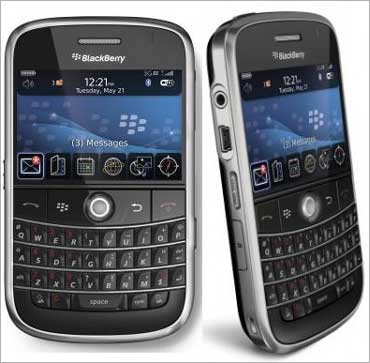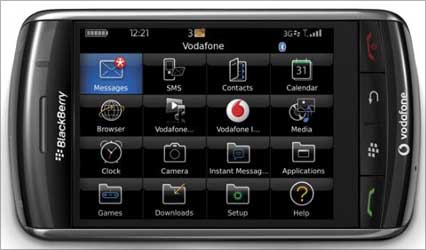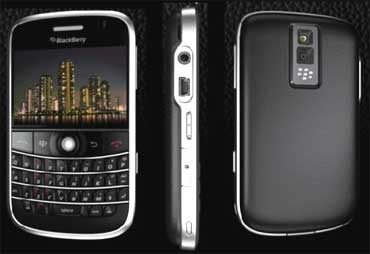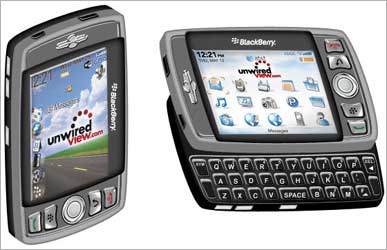 | « Back to article | Print this article |
India not to ban BlackBerry services: RIM
Research in Motion (RIM) has got an assurance from the Indian government that the smartphone maker's BlackBerry services in the country won't be banned.
"We are working to provide a final solution for BlackBerry messenger services by January.
We are still in discussions with the government on the issue of interception of BlackBerry Enterprise Services (BES), but we have got an assurance that there will be no ban on the services," Robert E Crow, vice-president (industry, government & university relations) at RIM, told Business Standard.
All photographs are for representative purpose.
Click on NEXT to read more...
India not to ban BlackBerry services: RIM
The Canadian smartphone maker has over 1.5 million customers in India.
Crow said RIM had an in-principle approach in all geographies - maintaining a balance between corporate security and governments' needs.
He said the policy framework for BES was under discussion and the company was prepared to help as well as bring others with best practices to resolve the matter.
Click on NEXT to read more...
India not to ban BlackBerry services: RIM
According to Crow, the enterprise services can be intercepted at the corporate server and even the key to it is owned by the company, which takes the service.
"All mails are available in the text form with the corporate server. The government has to come out with a policy on storing this data for a specific period of time. This involves costs."
In the US, there is a policy of saving data for a specific period.
He said India had to come out with a final policy framework, which should have vendor and technology neutrality.
Click on NEXT to read more...
:India not to ban BlackBerry services: RIM
RIM is planning to bring out a mobile device, which will enable operators to give data services at a speed equivalent to 3G mobile services, called Evolved Edge services.
The service providers will have to upgrade their base stations to provide services through this platform at 2.9G, which will be an evolved version of 2G, according to him.
When asked if these mobile devices would be less than Rs 10,000, Crow said it would definitely be less than their existing lowest-priced handset of Rs14,000, which is only 2G-enabled.
Click on NEXT to read more...
India not to ban BlackBerry services: RIM
The 3G phones start from Rs19,000.
Some operators, who had not been able to bag 3G spectrum in the auction and others who had bagged in select circles, would be able to offer their subscribers a seamless connectivity and 3G experience through the evolved 2G platform, he said.
RIM already has one such device in its portfolio, but there are no takers for it.
Click on NEXT to read more...





